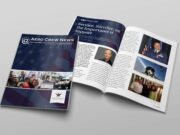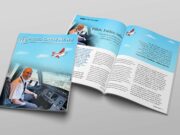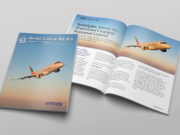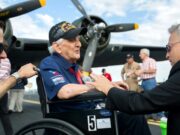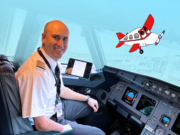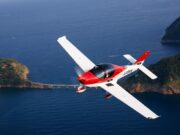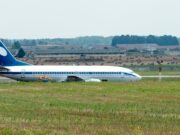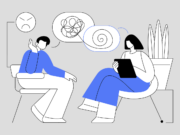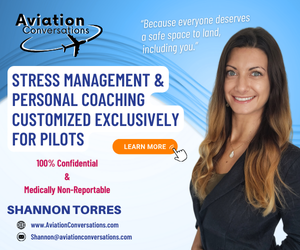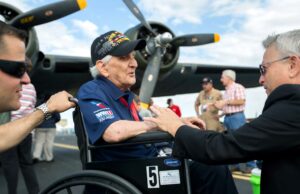
A popular industry phrase you have most likely heard goes, “A good pilot is always learning.” One that is equally true but much less fun could be. “A good pilot is always prepared for their next evaluation.” Throughout a flying career, pilots find themselves consistently proving that their flying skills, knowledge and overall proficiency meet acceptable standards through a number of different checkrides and evaluations. While being critiqued and graded becomes a part of our regular routine, that does little to keep away the nerves when an evaluation is approaching. Learning to continually critique yourself and your performance in a productive way will serve you very well as you progress through your career, as it will increase your confidence and help you to think and analyze like an evaluator.
Evaluations go by many names – checkrides, stage checks, checking events, etc. They are all important and serve the same purpose of ensuring that skills and knowledge thresholds are met and/or maintained. The path to a new certificate or rating ends in a checkride that must be passed in order to exercise those privileges sought. Stage checks are often used during flight training to verify that a pilot is ready to move onto the next section of training. Evaluations do not end once a pilot is finished earning new certificates and ratings. Routine testing continues to ensure that pilots are maintaining their skills. A private pilot who wishes to fly only for fun must work with a flight instructor to pass a flight review every two years. Even a professional pilot who has earned an Airline Transport Pilot certificate will continue to be tested in what is normally referred to as recurrent training. Featuring both ground school and simulator training, and ultimately a checkride, recurrent training is developed to keep pilot knowledge and skills up to standard and make certain pilots maintain proficiency in their aircraft, company operations and emergency procedures. In the airline world, there is additional testing in the aircraft. After earning a type rating on a new aircraft, a pilot is required to complete Initial Operating Experience with an experienced and qualified captain known as a line check airman. Satisfactorily completing this event signifies that the line check airman approves of your flying skills and overall operational knowledge and believes you will safely operate aircraft on the line.
I discuss the testing that pilots routinely experience not to induce fear, but to promote an attitude that accepts this reality; an attitude that will ultimately lead to lower stress and better preparation practices. Evaluation events are simply part of the job. One of the best things you can do for yourself is to learn how to productively critique your performance as a pilot when there is no evaluator present. Developing constructive analysis skills will allow you to recognize patterns and detect issues that need addressing. While this may seem like a relatively simple task, it becomes especially important when you leave the training environment and no longer have an instructor to provide immediate feedback.
If you are in the early stages of your training, learn how to critique a flight from your instructor. At an appropriate time, ask to take the lead on post-flight debriefs to make sure your recollections match those of your instructor. Discuss both positive and negative aspects of the flight and learn to productively focus on the negative. What could have been done to change the outcome, and what will you do differently in the future to be sure the same mistake is not made again? No pilot is perfect, and no flight is without mistakes.
If you are further along in your training or flying professionally, use your experiences taking checkrides and other evaluations to critique your flights. Hold each flight up to evaluation standards and ask yourself if you would have passed. If a portion of the flight was not up to standards, what can be done moving forward to prevent the same error on future flights? Developing a mindset by which you treat each flight as an evaluation will prevent you from picking up bad habits that may lead to less than desirable outcomes on future checkrides.
Rather than thinking of evaluations only when the next one is approaching, I prefer to treat each flight as an evaluation. If I perform and react to events every day as I would in a checkride, then I do not need to change my thinking or my actions when there happens to be an evaluator watching. While this will not remove all feelings of nervousness that surround official evaluations (we are human after all), you can be confident that you have continually held yourself to those standards. No matter the stage of your career, productively and accurately critiquing yourself will make you a better pilot. If flying with an instructor or as part of a crew, use all available resources to get another assessment on your performance. If you approach each flight as if an evaluator were watching, future checkrides will feel like just another day at work.


